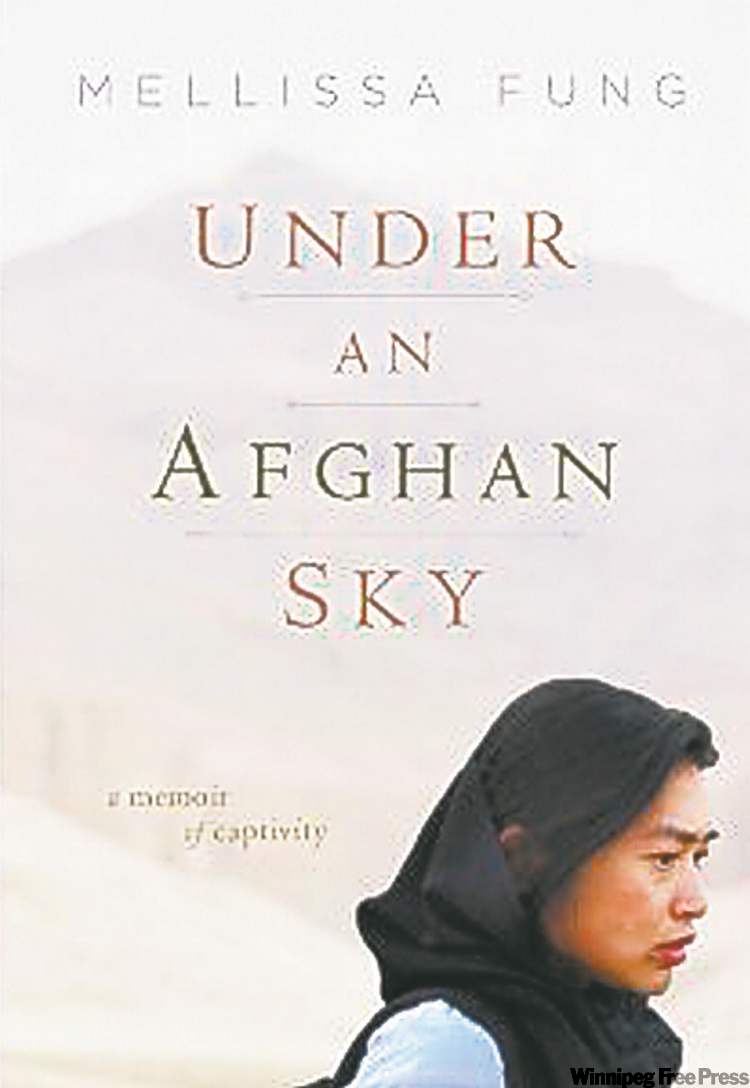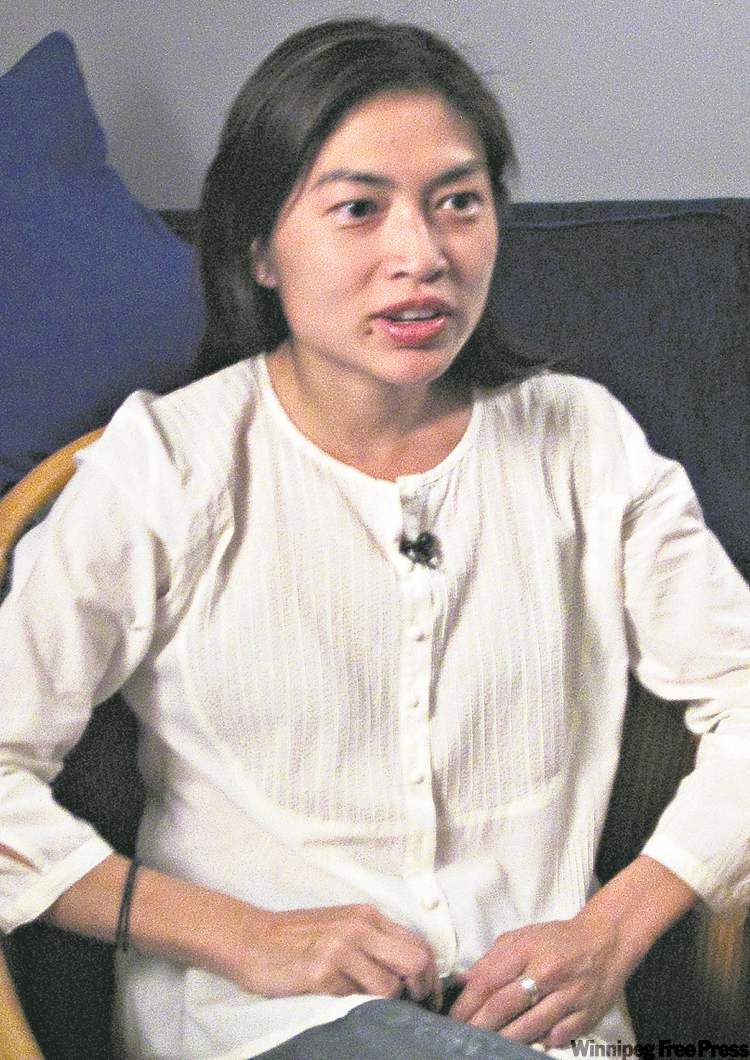Hostage Mellissa Fung’s memoir engrossing
Advertisement
Read this article for free:
or
Already have an account? Log in here »
To continue reading, please subscribe:
Monthly Digital Subscription
$0 for the first 4 weeks*
- Enjoy unlimited reading on winnipegfreepress.com
- Read the E-Edition, our digital replica newspaper
- Access News Break, our award-winning app
- Play interactive puzzles
*No charge for 4 weeks then price increases to the regular rate of $19.00 plus GST every four weeks. Offer available to new and qualified returning subscribers only. Cancel any time.
Monthly Digital Subscription
$4.75/week*
- Enjoy unlimited reading on winnipegfreepress.com
- Read the E-Edition, our digital replica newspaper
- Access News Break, our award-winning app
- Play interactive puzzles
*Billed as $19 plus GST every four weeks. Cancel any time.
To continue reading, please subscribe:
Add Free Press access to your Brandon Sun subscription for only an additional
$1 for the first 4 weeks*
*Your next subscription payment will increase by $1.00 and you will be charged $16.99 plus GST for four weeks. After four weeks, your payment will increase to $23.99 plus GST every four weeks.
Read unlimited articles for free today:
or
Already have an account? Log in here »
Hey there, time traveller!
This article was published 28/05/2011 (5274 days ago), so information in it may no longer be current.
Under an Afghan Sky
A Memoir of Captivity
By Mellissa Fung

HarperCollins, 358 pages, $33
UNDER an Afghan Sky may strike readers as an odd title for this otherwise engrossing memoir, since Mellissa Fung spent 28 days in a hole in the ground, tunnelled out under a house a few miles from Kabul, and shut out from the world around her.
Fung, a correspondent for CBC-TV News, was kidnapped by the supposed Taliban in 2008 during her second posting in Afghanistan.
Her time in confinement bears some similarity to that of fellow Canadian James Loney, whose book Captivity was recently reviewed in these pages.
Snatched from a refugee camp where she was covering the plight of those displaced by the war, Fung was stabbed in the shoulder and hand, spirited away by car then motorcycle, and dumped in an underground hole. Her captors weren’t the real Taliban, however, but a ragtag group of thugs who abduct foreigners for profit.
In fact, it was a family operation of opportunistic criminals who themselves feared the Taliban. And at least one of them had serious misgivings about their work.
Her time in captivity was confusing, terrifying, frustrating and tedious. Her kidnappers took turns guarding her in the underground prison, repeatedly promising her release “in two days, inshallah,” feeding her mostly sugary cookies and juice, and — at times — threatening to kill her.
What makes this book so affecting, however, is not any Hollywood-style drama or tension, but a rather unexpected and touching relationship she builds with one of her abductors, “Khalid,” who calls her “my sister” and pledges not to kill her.
Khalid tells her that he is sorry she was kidnapped and asks if she hates him. They share stories of their personal lives, and Khalid reveals his deep love for his fiancé, who — though she never meets Fung — makes her french fries.
During her ordeal, Fung (who is in her late 30s) makes other connections with her guards. Ever the journalist, she constantly asks them questions and pushes for details about why they do this. One captor teaches her Pashto, and the two of them sing to each other; he from the Qur’an, and Fung from her memory of hymns learned from her Catholic upbringing in Vancouver.
An incongruous scene is set as, to the delight of her devoutly pious abductor, Fung belts out the American national anthem and songs praising a Christian god.

But it’s not all sweetness and light. Her captors regularly criticize her for not being a Muslim, and frustrate her with repeated mantras about the evils of the United States and NATO, and praise for Mullah Omar and Osama bin Laden. She was assaulted, abused physically, mentally and emotionally, and constantly grappled with the fear that she would be killed.
Apart from her often-frustrating exchanges with her captors, Fung found other ways to communicate: she called on her somewhat lapsed Christian beliefs in prayer and wrote letters to family and friends, and her boyfriend Paul Workman, a fellow CBC reporter.
His letters to her, written during her captivity, are reprinted here as well, revealing a love story of sorts.
Finding herself angry with God, she nonetheless resolves that it “would not be a good time to doubt the existence of God.” And she finds odd occasions of beauty in a period of fear and misery.
In a scene that reveals the meaning of the title of her book, Fung gives thanks for a moment that “will stay with me forever.” It’s an uplifting experience that speaks to her strength of character and her feelings of hope.
The head of political studies at the University of Manitoba, George A. MacLean spent time with Canadian troops when they were stationed in Kabul, Afghanistan.


